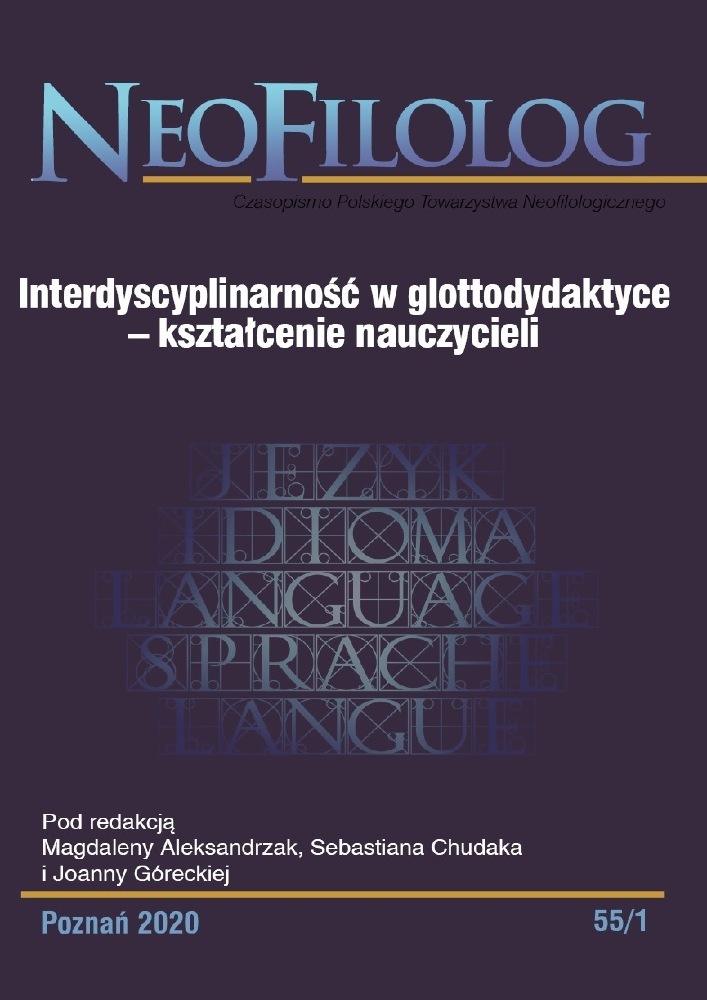Abstrakt
Preparing thoughtful reflective practitioners has become a common concept in the teacher education literature. Prior educational experiences offer excellent opportunity for students to reflect on authentic teaching examples and provide constructive ways to engage in reflective practice. This study examines critical incidents as a tool for developing reflective thinking skills among teacher trainees (N=11). The research on use of critical incidents for training comprised a questionnaire and group discussions. The instrument used for analyzing critical incidents included personal details, factual information and open-ended questions concerning reasons for and consequences of the incident, associated emotions, reflections connected with it, lessons from this incident and its implications for the future. Overall, although some crucial issues arose, the technique proved useful for training, and was assessed as positive and valuable by the teacher trainees. Some pedagogical implications were formulated regarding problems with understanding the notion of critical incident, previous training of the teacher trainees and the need for a supportive environment.
Bibliografia
Babione C. (2015), Practitioner teacher inquiry and research. San Francisco: Jossey Bass.
Brookfield S.D. (1990), The skillful teacher. San Francisco: Jossey Bass.
Bruster B.G., Peterson B.R. (2013), Using critical incidents in teaching to promote reflective practice. „Reflective Practice”, No 14/2, pp.170-182.
Cirocki A., Farrell T. S. (2017). Reflective practice for professional development of TESOL practitioners. “The European Journal of Applied Linguistics and TEFL”, No 6/2, pp. 5-23.
Davies H, Kinloch H. (2000), Critical incident analysis: facilitating reflection and transfer of learning, (in:) Cree V.E., Macaulay C. (eds.), Transfer of learning in professional and vocational education. London: Routledge, pp. 137-147.
Dewey J. (1933), How we think: A restatement of the relation of reflective thinking to the educative process. Boston, MA: DC Heath.
Farrell T.S. (2007), Reflective language teaching: From research to practice. London: Continuum Press.
Farrell T.S. (2015), Reflective language teaching: From research to practice. London: Bloomsbury Publishing.
Farrell T.S. (2018), Reflective language teaching: Practical applications for TESOL teachers. London: Bloomsbury Publishing.
Farrell T.S., Baecher L. (2017), Reflecting on critical incidents in language education: 40 dilemmas for novice TESOL professionals. London: Bloomsbury Publishing.
Finlay L. (2008), Reflecting on reflexive practice. The Open University „PBPL paper”, No 52, pp. 1-27.
Flanagan J.C. (1954), The critical incident technique. „Psychological Bulletin”, No 51/4, pp. 327-358.
Griffin M.L. (2003), Using critical incidents to promote and assess reflective thinking in pre-service teachers. „Reflective Practice”, No 4/2, pp. 207-220.
Griffin M.L., Scherr T.G. (2010), Using critical incident reporting to promote objectivity and self-knowledge in pre-service school psychologists. „School Psychology International”, No 31/1, pp. 3-20.
Harris A.S., Bruster B., Peterson B., Shutt T. (2010), Examining and facilitating reflection to improve professional practice. Blue Ridge Summit, PA: Rowman & Littlefield Publishers.
Jay J.K., Johnson K.L. (2002), Capturing complexity: a typology of reflective practice for teacher education. „Teaching and Teacher Education”, No 18, pp.73-85.
Johnson K.E., Golombek P.R. (2002), Teachers' narrative inquiry as professional development. Cambridge: Cambridge University Press.
Kiliańska-Przybyło G. (2009), Rozwijanie refleksyjności nauczycieli języków obcych na przykładzie techniki analizy zdarzeń krytycznych. Studium przypadku. „Neofilolog”, No 33, pp. 65-75.
MacLachlan M., McAuliffe E. (1993), Critical incidents for psychology students in a refugee camp: Implications for counseling. „Counselling Psychology Quarterly”, No 6/1, pp. 3-11.
Mann S., Walsh S. (2017), Reflective practice in English language teaching: Research-based principles and practices. New York: Routledge.
Michońska-Stadnik A. (2009), Od wyboru podręcznika do rozwoju autonomicznego poznania. Rola refleksji w kształceniu nauczycieli języków obcych, (in:) Pawlak M., Mystkowska-Wiertelak A., Pietrzykowska A. (eds.), Nauczyciel języków obcych dziś i jutro. Poznań: Wydział Pedagogiczno-Artystyczny UAM w Poznaniu, pp. 97-106.
Ross D. (1990), Programmatic structures for the preparation of reflective teachers, (in:) Clift R.T., Houston W.R., Pugach M.C. (eds.), Encouraging reflective practice in education. New York: Teachers College Press, pp. 97-118.
Rossman G.B., Rallis S.F. (2014), Everyday Ethics: Reflections on Practice. „International Journal of Qualitative Studies in Education”, No 23/4, pp. 379-391.
Schön D.A. (1983), The reflective practitioner. New York: Basic Books.
Schön D.A. (1987), Educating the reflective practitioner: Toward a new design for teaching and learning in the professions. San Francisco: Jossey Bass.
Shapira-Lishchinsky O. (2011), Teachers’ critical incidents: Ethical dilemmas in teaching practice. “Teaching and Teacher Education”, No 27/3, pp. 648-656.
Tripp D. (1993), Critical incidents in teaching: Developing professional judgement. Abingdon: Routledge.
Valli L. (1997), Listening to other voices: A description of teacher reflection in the United States. „Peabody Journal of Education”, No 72/1, pp. 67-88.
Werbińska D. (2009), Dylematy etyczne nauczycieli języków obcych. Warszawa: Fraszka Edukacyjna.
Werbińska D. (2017), The formation of language teacher professional identity: A phenomenogrpahic-narrative study. Słupsk: Wydawnictwo Naukowe Akademii Pomorskiej w Słupsku.
Zawadzka-Bartnik E. (2014), Refleksja w zawodzie nauczyciela - założenia a realne możliwości realizacji. „Neofilolog”, No 43/1, pp. 7-23.
Licencja
Prawa autorskie (c) 2020 Sylwia Kossakowska-Pisarek

Utwór dostępny jest na licencji Creative Commons Uznanie autorstwa – Bez utworów zależnych 4.0 Międzynarodowe.
Przedstawiany utwór (artykuł) upubliczniany jest na podstawie umowy z autorem i na licencji Creative Commons Attribution-NoDerivatives 4.0 International (CC BY-ND 4.0).
Użytkownicy mają obowiązek podania wraz z rozpowszechnionym utworem, informacji o autorstwie, tytule, źródle (odnośniki do oryginalnego utworu, DOI) oraz samej licencji;
- bez tworzenia utworów zależnych,
- utwór musi być zachowany w oryginalnej postaci.
Uniwersytet im. Adama Mickiewicza w Poznaniu zachowuje prawo do czasopisma jako całości (układ, forma graficzna, tytuł, projekt okładki, logo itp.).

